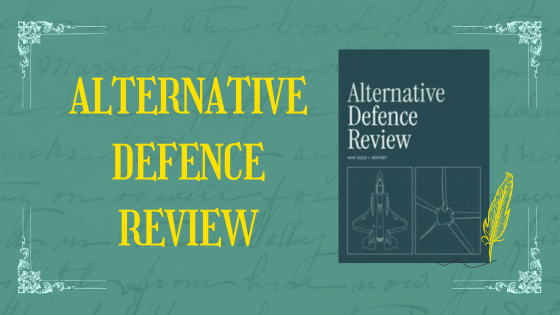The Campaign for Nuclear Disarmament (CND) has launched the Alternative Defence Review in response to the UK Government’s 2025 Strategic Defence Review. The document explores the broader implications of increased defence spending and offers a different perspective on national and international security policy. It forms part of a wider initiative involving trade unions and peace organisations aiming to reassess the direction of UK foreign and defence policy.
To learn more, please click here.
Below is the full text of the introduction to the Alternative Defence Review:
Alternative Defence Review
The UK’s 2025 Strategic Defence Review comes at a moment of intensifying global conflict, escalating climate crisis and soaring UK inequality. Yet, rather than rethinking the country’s militarised foreign policy in response to these pressures, the Government proposes to dramatically increase defence spending, a move that risks worsening each of these crises.
This Alternative Defence Review challenges the dominant war narrative—cultivated by political elites, the military-industrial complex, and the mainstream media—and offers a new vision for peace, justice, and security.
It was proposed by CND in response to the RMT union’s decision to ‘… campaign with other trade unions and peace organisations to convene a labour and peace movement summit to work out the basis of a new foreign policy with the promotion of peace and social justice at its heart’. The Alternative Defence Review is intended to be a contribution towards this.
It examines how militarisation has distorted national priorities, fuelled global instability, undermined international law, harmed the environment, and diverted investment from public services and social infrastructure. It shows that increased military expenditure will be economically inefficient, environmentally destructive, and socially regressive, offering limited job creation while stifling a more sustainable and just economy. The review calls for a shift toward a significantly demilitarised defence strategy rooted in human security and common security—prioritising diplomacy, global cooperation, conflict prevention, and investment in health, education, climate resilience, social care, and the creation of well-paid, secure, unionised and socially useful jobs. It advocates for a significant reduction in military spending, an immediate halt to arms exports to countries involved in active conflict or human rights abuses (including Israel and Gulf states), and a Just Transition for defence-dependent workers and communities. This report offers a credible, democratic alternative to militarism: a sustainable economy grounded in social justice, global solidarity, and the urgent need to build peace—not war—for the 21st century.

